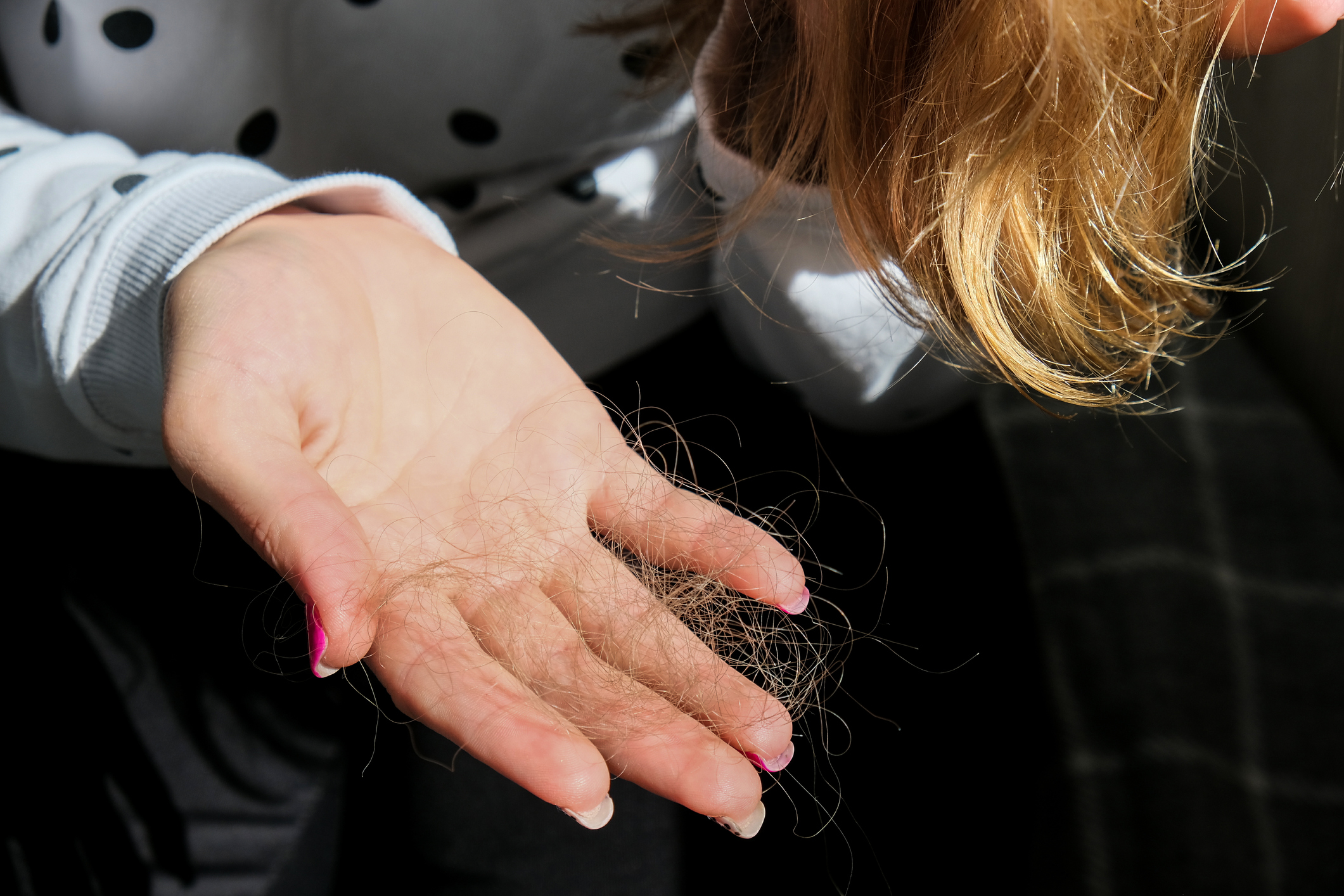

After two and a half years of avoiding COVID-19, my luck ran out over the holidays. Thankfully, my case was mild, and most of my symptoms disappeared within a couple of weeks.
But I’d be lying if I said I wasn’t worried about “long COVID.” At least one study has shown people who’ve been infected with the SARS-CoV-2 virus that causes COVID are much more likely to report one or more of 62 symptoms 12 weeks after initial infection than those who hadn’t contracted the virus.
Some of the symptoms commonly associated with the long COVID phenomenon include anosmia (loss of sense of smell), sneezing, loss of libido, difficulty ejaculating, shortness of breath while at rest, fatigue, pleuritic chest pain, hoarseness, fever and hair loss.
While none of these symptoms are pleasant or desirable, I’m a little embarrassed to admit the possibility of losing my hair hits particularly hard. But how worried should I be?
How COVID affects your hair
Many people who’ve had COVID have been dismayed to notice clumps of hair falling out in the months after their illness. In fact, I’ve met several women personally who blame COVID for noticeable hair loss.
The human body’s 5 million hair follicles continuously cycle through three stages. First is the anagen stage, when hair grows and pushes through the skin. Then comes the catagen stage, when hair dies. Finally, during the telogen (or rest) stage, the hair falls out and regenerates.
Hair follicles remain in the anagen stage 85 to 90 percent of the time, and this growth stage can take anywhere from 2 to 4 years. By contrast, the rest stage may only last 2 to 4 months.
Every human loses between 50 and 150 hairs every day. But in some cases, COVID can cause you to shed more hair than normal. This is a condition known as acute telogen effluvium.
The physical and emotional stress from COVID can deal a shock to your body and disrupt your hair’s growth-rest cycle. This can push as many as 30 to 50 percent of hair follicles into the telogen stage when normally only 5 to 10 percent are in that stage at one time. And that translates to increased hair shedding, usually when you agitate the scalp by brushing or shampooing your hair.
In addition to physical stressors, COVID can also take a toll on your mental state. All these changes can produce stress hormones that trigger an extended resting phase in hair follicle stem cells.
Duration could be short-lived
The good news is since telogen effluvium doesn’t cause any long-term damage, the shedding is likely to be temporary, lasting roughly 3 to 6 months.
However, you’ll need some patience. Hair grows about 1 centimeter per month, so regrowth can take anywhere from 6 to 9 months. And it could be 18 to 24 months (or more) before your hair fills out completely.
There’s no medication to treat telogen effluvium, but you can help manage the hair shedding it causes. Try to handle your hair carefully when brushing or combing it and use a conditioner when you wash your hair to decrease tangles. Don’t wear styles that apply tension to your hair, like tight ponytails or headbands, since that can also break down hair and make it more prone to falling out.
Stress can contribute to telogen effluvium, and hair loss can cause stress, which feeds into the hair shedding cycle. Practicing stress-relieving techniques such as yoga or meditation can help break this loop. Some people find CBD tinctures helps with stress.
While the majority of telogen effluvium cases are short-term, be aware that COVID can lead to chronic telogen effluvium that lasts several years, particularly in people who experience long COVID symptoms. If you notice your post-COVID hair loss isn’t improving after several months, you may want to get a referral to a dermatologist.
There are also some natural steps you can take to manage hair shedding, including scalp massage with essential oils and eating a diet rich in protein, fruits and vegetables and healthy oils. Some natural shampoos can also help grow and strengthen hair.
Sources:
Hair Loss After COVID: Should You Be Concerned? — Integris Health
Can COVID-19 Cause Hair Loss? — American Academy of Dermatologists Association
Losing Your Hair After COVID-19? There Is Good News — University of Utah Health
